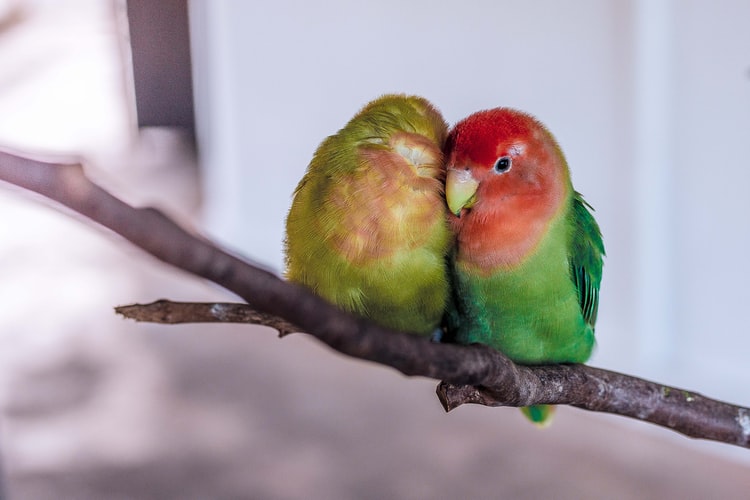Birds try to hide that they are sick so that their predators do not see them as easy prey, for this reason it is difficult at first glance to detect that your bird is sick. There are always small details that you can look at to detect if there is a risk that there is some type of disease in our birds.
How can I tell my bird is sick?
Remember that if you notice any of these symptoms, you should go immediately to the vet :
1. Abnormal stools.
The consistency and color of bird droppings can change due to variations in diet. However, any stool that is yellow, reddish, or black should be considered abnormal . These colors can be indicative of internal bleeding, among other things. It is also advisable to control the consistency, if it is too soft or too hard it can lead to problems for the health of your pet.
2. Ruffled feathers.
If a bird sits still with ruffled feathers for longer than usual, it may be a sign of a respiratory disease. In addition, this behavior masks any weight loss, which is very serious for domestic birds. If your pet behaves this way for more than a day , see your vet as soon as possible.
3. Runny nose, nasal redness or swelling.
If you notice any of these signs of illness in birds, take her to the vet immediately and be sure to cover the cage well to keep it safe from drafts.
4. Abnormal noises in breathing or voice.
Bubbling, snoring, hissing, sneezing, loss of voice or changes in tone, as well as an increase in respiratory rate or wheezing, can be symptoms of respiratory infections .
5. Discharged or cloudy eyes.
This is also a clear symptom of respiratory, nervous or muscular disease and requires immediate attention by a specialist veterinarian.
6. Loss of appetite.
Birds have a fast metabolism and therefore it is vital that they eat very well on a daily basis. If your bird stops eating and begins to lose weight, it may have intestinal impaction , which is a very serious disease in birds. Clean the floor of the cage every time you feed your pet, so you can control if it consumes the food or throws it away and if its stools are normal. Loss of appetite is a common symptom for different bird diseases.
7. Breathing with the mouth open.
If your bird breathes with its beak open while at rest, it is a clear sign of respiratory distress, an advanced stage of this type of condition that requires the immediate attention of a veterinarian.
8. Dirty and lackluster plumage.
Birds are naturally clean animals that groom themselves permanently. If the feathers appear caked or dirty , it is a possible symptom of illness. Keep your bird under observation for a couple of days and inform your trusted vet of any changes you notice.
9. Tail movements.
Due to the anatomy of birds, with lungs and air sacs distributed throughout the body, the muscles of the tail can help expand the body cavity in an effort to breathe in more air . The result is an upward and downward movement of the tail that accompanies the breath. This is a sign of advanced respiratory distress and requires immediate medical attention.
10. Changes in your behavior.
If you notice your domestic bird down , silent or with a different tone of voice , your pet may be suffering from some kind of disease. Pay attention to their usual way of vocalizing, so you can detect any changes and act in time.
As with people, when what is at stake is the health of our pet birds, it is always better to be safe than sorry. We recommend that you put all the affection and dedication that the care of the birds requires, and that you pay special attention to their food and hygiene. Observing your habitual behavior is the best way to detect in time all those strange behaviors that may pose a risk to your health.


